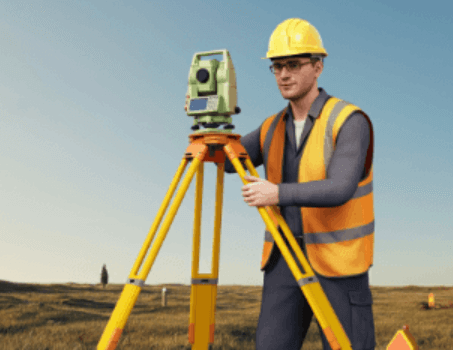Whether you’re planning a home sale, considering an upgrade, or just curious, knowing the actual size of your property is essential. In Florida, even a small miscalculation in lot size or home square footage can significantly impact your property taxes, insurance rates, and overall valuation. Many homeowners are surprised to find discrepancies between official records and the actual usable space. This guide helps you accurately determine the “size of my property” in Florida, eliminating confusion. Renowned real estate investors and trusted cash buyers, Steve Daria and Joleigh, help homeowners like you verify these details to make informed decisions. Understanding your property’s precise dimensions ensures smarter upgrades, accurate pricing, and a faster, smoother sale. If you need clarity on how to find the “size of my property” in Florida and want to explore its cash value, we can help. Book your free, no-obligation discussion today to get started.
Key Points
- Consult Public Records: Public records are a reliable source for determining the “size of my property” in Florida. Access these records through your local county’s property appraiser’s website, which typically lists property dimensions and boundaries.
- Utilize Property Surveys: A property survey accurately measures your property’s size and boundaries. These documents are often included in the closing paperwork when you purchase your home, or you can hire a professional surveyor for a new survey.
- Check Your Deed: Your property deed may contain details about the size and dimensions of your property. Reviewing this legal document can provide insights into your property’s exact boundaries and total area.
- Use Online Mapping Tools: Online mapping tools, such as those provided by local government websites or real estate platforms, can offer a visual representation of your property’s size. These tools allow you to measure dimensions and view aerial images to better understand.
- Contact the County Property Appraiser: Contacting the county property appraiser’s office can help clarify any questions about your property’s size. They can provide official documents or guidance on accessing the most accurate and up-to-date information about your land.
What is the Right Method to Measure and Find Out the Size of My Property in Florida?
Accurately measuring the “size of my property” isn’t merely a matter of pacing out the perimeter— though that’s a good start.
In Florida, the methodologies can vary depending on property type, such as if it’s a single-family home, part of an HOA development, or rural acreage.
With this in mind, here are the main methods to consider:
Use the “Old School” Approach
Consider the “old school” method of measuring the property with a long tape measure for a fast, informal estimate.
You can do this manually or conveniently with a wheeled measuring device.
Ensure you measure from one existing marker—like a fence post or a corner of your home— to another, keeping a clear record of your measurements.
Employ Satellite Imagery and GIS Maps
Another tool you can use is satellite imagery. Several online services offer high-resolution images of your location.
Paired with Geographic Information Systems (GIS) software, these images can give you a reasonably accurate measurement within a few feet.
However, they could also be off due to image distortion or changes in the landscape since the image was taken.
Opt for a Land Surveyor
Hiring a professional land surveyor is wise for a detailed and official measurement.
This expert uses specialized instruments and knowledge of state property laws to provide precise measurements, establish legal boundaries, and mark your property lines.
In Florida, surveys are essential for understanding your exact lot size and shape, especially with coastal properties.

Understand Easements and Encroachments
A survey comes with the benefit of identifying any easements or encroachments—these are vital to comprehend in Florida real estate.
Knowing whether a public utility is allowed access to a portion of your land or if your neighbor’s fence is just a few inches too far can protect your investment and help avoid disputes.
Get An Offer Today, Sell In A Matter Of Days…
How to Resolve Property Line Disputes in Florida
Here’s what to do if you find yourself in a property line dispute:
Review the Property Survey
If a dispute arises, the first step is to review your property survey. The court will review this document and legal descriptions of your property to establish boundaries.
Communicate with Your Neighbor
Open, direct communication can often resolve issues amicably. Share your findings and be ready to listen to their perspective.
Sometimes, disputes result from misunderstanding rather than a clear violation.
Seek Legal Advice
If communication fails, it may be time to seek legal counsel.
A real estate lawyer can help you complete the survey and provide guidance on your rights and options.
Additionally, considering the services of an “architect near me” could be beneficial, especially if there are structural or design considerations related to your property.
An architect can offer expertise on potential modifications or improvements, complementing the legal insights provided by your attorney.
File a Quiet Title Action
When all else fails, filing a quiet title action can help conclusively resolve property disputes. This lawsuit establishes you as the sole owner of the property’s title.
What do Florida Property Owners Need to Know About Zoning Regulations?
Understanding zoning regulations is crucial to property knowledge, especially if you plan to develop or expand your property.
Zoning 101
In Florida, local governments determine land use through zoning regulations. Zoning designations dictate what can and cannot be done with a property.
This can include rules on property sizes, building heights, setbacks, and more.
Reading the Zoning Map
Every piece of property in a municipality is designated a zoning classification.
The local zoning map can be understood by understanding this classification and what it allows.
These maps are usually available online through the county’s property appraiser’s office or planning department.
Applying for Rezoning
You can apply for rezoning if your development plans require something outside your current zoning classification.
This process involves demonstrating to the local zoning board how your proposed change aligns with the community’s best interests.
Impact of Wetlands and Coastal Management
Florida’s unique natural landscape means property by wetlands, coastlines, and other delicate ecosystems may be subject to particular zoning restrictions.
These may prohibit building altogether or require special permits and considerations.

Can Property Tax Records Reflect the Size of My Property in Florida Accurately?
Property tax records can roughly indicate the “size of my property,” but they’re only sometimes precise. Here’s why:
Tax Assessors’ Methods
Tax assessors typically employ the quickest means of measuring property, using records and previously submitted documentation.
These can include previous surveys or deeds, but if your property has not been surveyed in a long time or a property marker has been moved or is missing, the tax records can be outdated.
Major Discrepancies
Assessors might not account for unusable or environmentally sensitive areas for property tax purposes. This could mean your tax record understates the actual size of your property.
Utility Lines and Easements
A professional survey can reevaluate property lines, easements, and utility lines. If a surveyor discovers that a portion of your land is already committed to public or private use, your property size in tax records might need to be inflated.
Size of My Property with Technology and Apps
We live in an age where technology can accurately measure the world around us. Several smartphone apps promise to estimate your property size with little more than a mobile phone camera.
The Efficacy of Apps
Apps such as MagicPlan, MapRight, and PropertyLog are becoming more sophisticated in deriving property measurements.
However, there remains a question of their legal defensibility. Are measurements taken with an app admissible in a court of law or for official permitting purposes?
The Verdict on App Measurement
While app measurements might be sufficient for casual observation or early-stage development planning, they likely won’t hold up as a legal boundary.
It’s always best to refer to a professional surveyor for your property’s dimensions.
Frequently Asked Questions About ‘The Size of My Property’ in Florida
Finally, we’ll address some frequently asked questions regarding the ‘size of my property‘:
How Often Should I Get My Property Surveys?
Your need for frequent surveys depends on several factors, including property type, changes in land use, and local regulations.
For most homeowners, a study at the time of purchase is standard. However, if significant changes are made to the property or a dispute arises, it’s time for an update.
Can I Be Forced to Sell Part of My Florida Property?
Yes, but under rare circumstances. Significant domain refers to the government’s ability to acquire private property for public use, provided just compensation is paid to the owner.
This can include road expansions, utilities, or public services.
How Do I Measure Irregular Property Shapes?
Irregularly shaped properties are best measured by breaking them down into a combination of basic geometrical shapes and measuring those precisely.
A surveyor can use these measurements to calculate the property’s total area.
What if the Size of My Property Has Been Misclassified?
Classifying your property’s size can impact taxes, development rights, and more. If you suspect your property has been misclassified, it’s best to consult a real estate attorney to understand your legal options.
**NOTICE: Please note that the content presented in this post is intended solely for informational and educational purposes. It should not be construed as legal or financial advice or relied upon as a replacement for consultation with a qualified attorney or CPA. For specific guidance on legal or financial matters, readers are encouraged to seek professional assistance from an attorney, CPA, or other appropriate professional regarding the subject matter.

